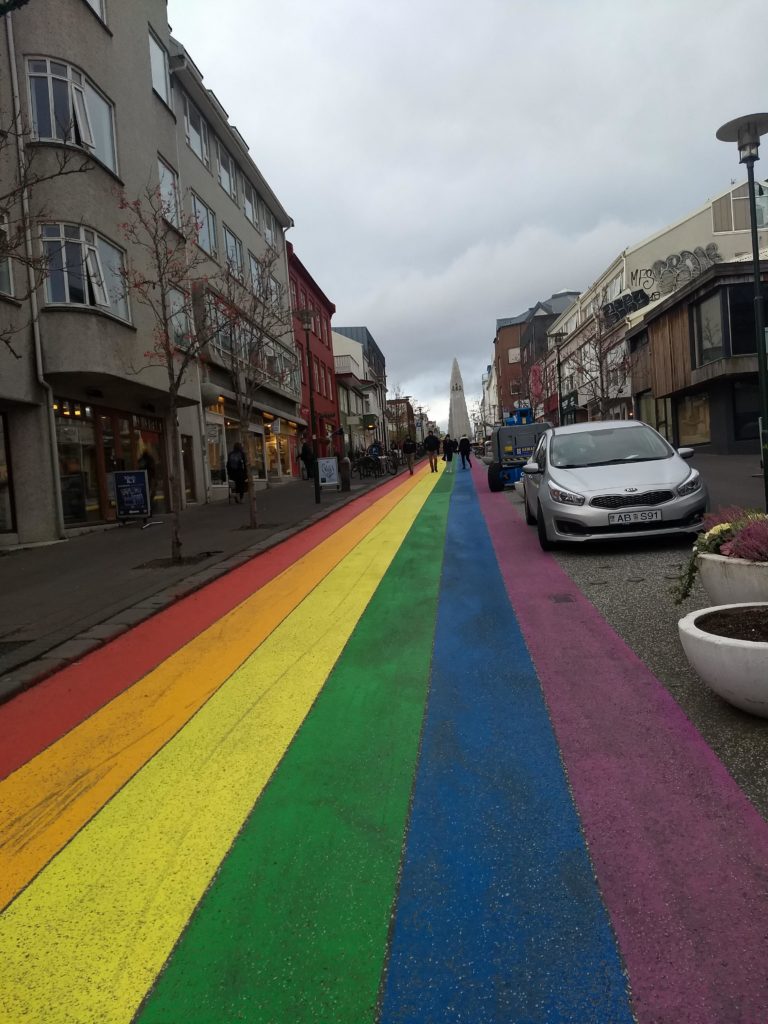The first-ever Polar Pride Day this week aims to broaden inclusion among polar researchers
The event was originally conceived for Antarctica, but quickly grew to include to the Arctic.

A Polar Pride Day will be held for the first time on Wednesday, marking an important step for LGBTQ+ inclusion in polar science.
The British Antarctic Territory government first declared a November 18 Pride Day for the Antarctic region this summer, but the celebration was soon extended to the Arctic as well.
The pride flag will be flown at locations in Antarctica and across the North.
Dr. Huw Griffiths, a polar research scientist at British Antarctic Survey, said in a statement, “This announcement feels like a huge step forward and a visible symbol of inclusion and support for the LGBTQI+ community.”
Griffiths is one of the founders of Pride in Polar Research, a science network devoted to diversity and inclusivity in polar research. In the two years since the organization’s founding, he said, the research community has made important progress toward inclusivity.
When Paul Sokoloff, now a botanist at the Canadian Museum of Nature and a member of Inclusion in Northern Research, was growing up, he wondered what his professional path would look like, and whether he would feel comfortable being his “full self” at work. “I don’t really know if I knew of any openly queer Arctic researchers when I was getting into it,” he says of his career.
“Up until fairly recently, our cultural depictions of scientists have been mostly old white men in lab coats,” Sokoloff told ArcticToday. “And especially in polar research — old straight men stoically staring off into the horizon.”
Events like Polar Pride Day are a necessary corrective to this stereotype, which has never really been accurate, he said.
“Representation matters,” he said. “Not only representation of queer folks in Arctic research and Antarctic research, but also general awareness that we’re here — it’s really cool.”
Even fairly recently, Sokoloff said, he has experienced some uncomfortable professional moments — like the time another attendee at a conference spotted his wedding ring and asked what his wife did for living. For an awkward moment, Sokoloff wasn’t sure how to respond.
But putting queer experiences front and center in professional spaces like conferences helps to ease some of this burden on LGBTQ+ people to make their presence known, he said. “I’ve also been very fortunate to be able to see how the spaces have changed even in my career.”
One such transformation has taken place at Arctic Change, the conference organized by ArcticNet. Last year, a Pride in Polar Research banner hung at the entrance, Sokoloff said. “That’s amazing. Right away, instantly, you felt more comfortable in the space.”
This year at the conference, three events following keynotes will focus on inclusion and diversity in the Arctic.
“It’s putting it out there, it’s saying that you have queer colleagues here and this is a safe space for everyone to share in our research endeavors,” Sokoloff said. “The conference won’t be the end of it; it’ll just be the beginning.”
This year, Polar Pride Day will be held on the same day as LBGTQ+ STEM Day, a celebration of pride in science, technology, engineering and math.
For Sokoloff, it’s a fitting overlap. Last year on LBGTQ+ STEM Day, his employer held a mini-seminar during lunch where queer researchers could talk about their work. This year, he’s looking forward to showcasing his Arctic botany research.
“I’m trying to figure out how to best represent what I want to say with that — but also boosting and amplifying other folks who are sharing on that day,” he said.
The organization Inclusion in Northern Research is focused on the idea that anyone “should be able to see themselves in these roles,” he said. “We have our queer researchers, we have researchers who are people of color, indigenous researchers, black researchers. Being able to celebrate the diversity of voices that make our community better — that’s really what’s motivating me to want to do this.”